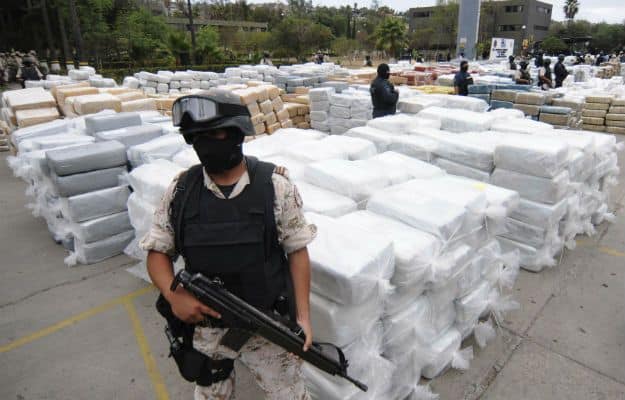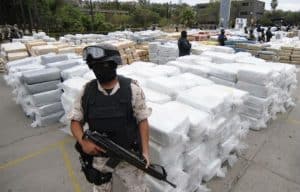Join Our Telegram channel to stay up to date on breaking news coverage
Spanish police appear to have taken a bold step towards crippling one of the world’s most extensive cartels after arresting a top-ranking member. According to an official press release, the police force arrested a suspected member of the famous Colombian Cali cartel in what could be a monumental development.
Laying Low in Malaga
The press release, published earlier this morning, confirmed that the suspected drug cartel member was apprehended in Malaga. The operation took collaboration between Spanish and Dutch police authorities, both of which gathered information about the suspect for about two years.
The unnamed suspect, a Colombian native, is reported to have been a significant player in the Cali cartel’s operations, facilitating the trade of about 6 million euros ($7.07 million) worth of cocaine. He reportedly set up an unnamed cryptocurrency exchange as a front, using it to facilitate money laundering operations and move his gains around.
His operations spanned Spain, the Netherlands, and the United Kingdom, and he reportedly settled in Malaga following pressure from his base in the Netherlands.
As part of the raid on his home, officers seized 85,000 euros ($100,193) in cash along with three luxury vehicles, computers, mobile phones, and 15 credit cards, they also got access to several cryptocurrency accounts. Over in the Netherlands, police also found $170,000 in cryptocurrencies, several documents, and other crypto wallet accounts at a raid on one of his properties.
Drug Dealers Using Crypto More
For all the progress made in the crypto industry, its dark past with drug facilitation continues to haunt it. This year, several parties have faced the long arm of the law following links with crypto-related narcotics operations.
In August, authorities tried the operators of the Chemical Revolution – Germany’s largest Dark Web drug platform. The criminals, who were arrested back in June 2019, were charged with selling vast quantities of narcotics – including heroin, MDMA, cannabis, and amphetamine – to customers for Bitcoin.
State prosecutors in Frankfurt alleged that all eleven of them trafficked over 130 kg worth of amphetamines, 17 kg of crystalline ecstasy, 42 kg of cannabis, and more via their platform between September 2017 and February 2019. In that time, they made about 1 million euros ($1.2 million), making their outfit arguably the country’s most extensive online narcotics trade.
Part of their success was tied to the group’s complex administrative structure, which relied on supply chain officers and informants. Several of the defendants in the case had been involved in several stages of the administration process, from sales staff to couriers to platform administrations. It’s unclear whether the platform itself still operates. However, given that it took almost two years for the police to bust them, they seemed to run an efficient outfit overall.
In the United States, the Department of Justice also unsealed a superseding indictment, charging six individuals for participating in a conspiracy to launder millions in drug proceeds for foreign cartels. As the indictment showed, the defendants used several front companies and casinos to launder the gains of drug syndicates One of them had even approached State Department officials, bribing them with cryptocurrencies for fake passports to aid travel for him and his associates.
Join Our Telegram channel to stay up to date on breaking news coverage


